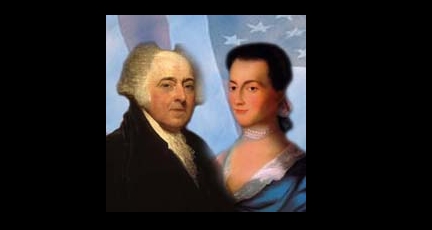The question was posed to my blog group “What does freedom mean to you?” Those who have read my blog long enough know of my penchant for things American, not the least of which are the ideals of liberty and freedom. So you might imagine my delight at seeing such a question posed.
America is, by its very nature, a melting pot. Neither I nor the rest of my country are as strong individually as we are collectively. To be an American doesn’t mean you are only caucasian, it means we are every race, creed, national origin, and even skin color you can think of. At our core though, all Americans are red, white, and blue. Each of us pursue our own dreams and desires, we live our lives largely on an individual basis, reaching out and embracing family and friends. Ask most of us what we really love and the responses you’ll get will run the gamut from materialistic to spiritual. It’s not unfair to say that each of us, deep down, reserves a small piece of real estate upon which we quietly nurture our love for our country, an ideal not indigenous to America alone.
Ask me if America (or our government) is perfect? I emphatically respond “No.”
Ask me if many things could be better? Naturally, I respond “Yes.”
Ask me what I think it means to be American? I say “For me it reduces down to two simple but powerful words: Freedom and Responsibility.”
I consider myself most fortunate, even blessed, to be an American. I enjoy, even take for granted, freedoms which people of other nations dream of or only read about in clandestine shadows and forbidden books. We have an immigration problem here because of what America is, not because as Americans we hate outsiders. The mere fact I can write this and speak my mind without fear of reprisal is because of our Constitution. That doesn’t mean I can be disrespectful just for the sake of speaking out; with powerful freedoms come equally powerful responsibilities. You can’t have one without the other.
Frankly, if you don’t like America then I and many of my American brothers and sisters wholeheartedly welcome and encourage you to leave. We don’t expect you to love everything about it, good and bad. Most of us don’t either. But we also try to work at becoming better people, better citizens . . . better Americans.
I take Liberty, to have and to hold. I will fade and pass eventually, but within my bloodline run the hopes and dreams of America.
Let Freedom ring.
Freedom, for many of us, means the ability to come and go as we please, to speak our minds, to travel, to exist within a certain framework of openess. For others it implies opportunity, perhaps to start over or simply acheive and excel more than possible before. In his book The Story of American Freedom, Eric Foner sums it up this way:
“Americans have sometimes believed they enjoy the greatest freedom of all—freedom from history. No people can escape from being bound, to some extent, by their past. But if history teaches anything it is that the definitions of freedom and of the community entitled to enjoy it, are never fixed or final.
We may not have it in our power, as Thomas Paine proclaimed in 1776, “to begin the world over again.” But we can decide for ourselves what freedom is.”
Men of great intelligence and passion took tremendous risks with their lives in the hopes that liberty would carry an infant nation, raise it above blueblood tyranny and respirate with the incendiary breath of righteousness. Wills of stone and hearts of kings carved away from English rule what “ought to be,” staving off a thrashing imperialistic beast. Are such men still among us?
Who now can see a million stars lying upon the water, and carefully, judiciously, ripple the water for the greater good and not self-interest—make good come from past mistakes, and one-by-one set the peoples’ victories to breathe in the velvet warmth of the midday sun?
Who will stand apart from the shrill voices of deception and answer honestly for every action?
At the root of all politics, of any movement of philosophy or philanthropy, sits the frailty of humanity. Its very nature an anathema as well as a gift. Amidst such documents of great intention and purpose should be men and women not only willing to exercise their humanity, but do so bereft of personal gain, save that of fulfilling a love of service to their country.
Perhaps our form of government isn’t the gold standard. It certainly isn’t perfect. On every issue, at every turn, stand opposing viewpoints and vehement exertions urging the behest of each one. Underneath it all should quietly but dependably beat the heart of a patriot. Never, not in our lifetimes, nor that of our children or their children in perpetuity, should any of us witness the dying gasp of freedom. It will always assuredly struggle and fight within itself, for out of that comes understanding. Unbridled it should never labor so, but raised with the discipline of proper loyalty it will prosper and mature.
Thomas Paine wrote in Common Sense, “Time makes more converts than Reason.” With a little help from Providence, Liberty will continue to hold her lamp aside the golden door, and we’ll be ever vigilant as we watch through the window of Time.



